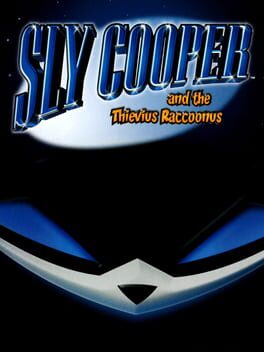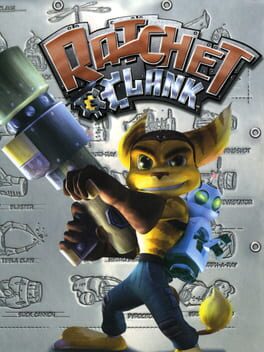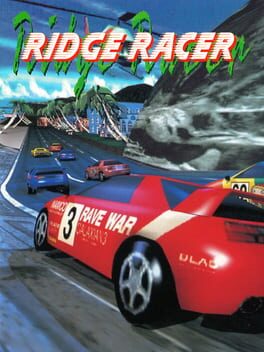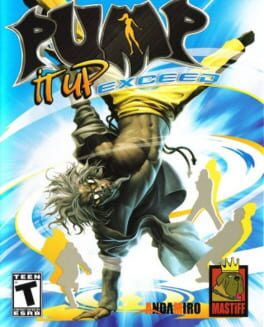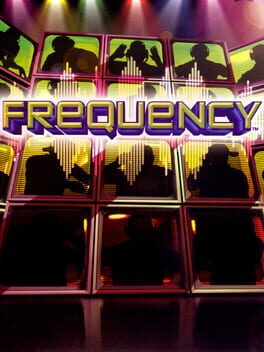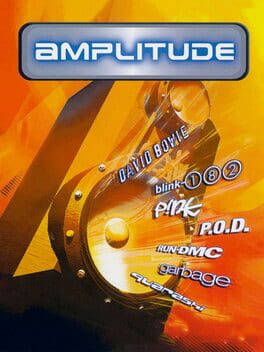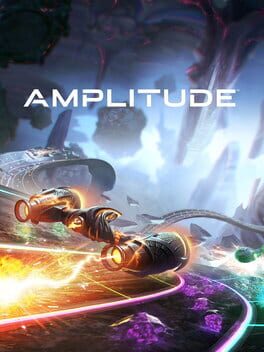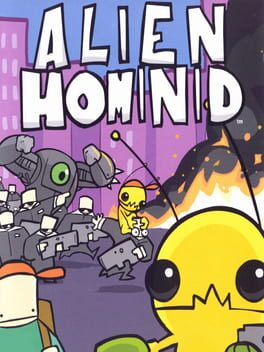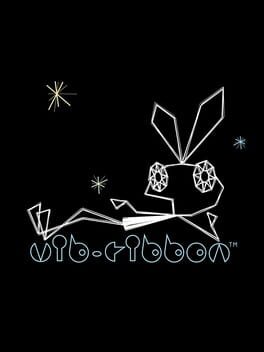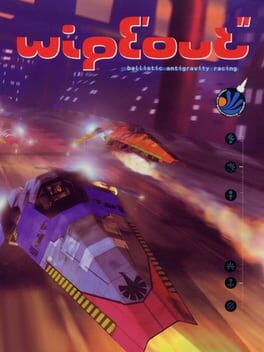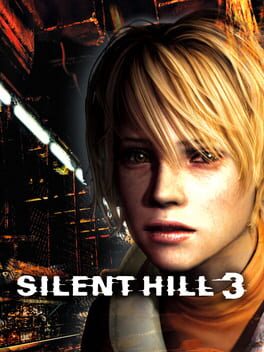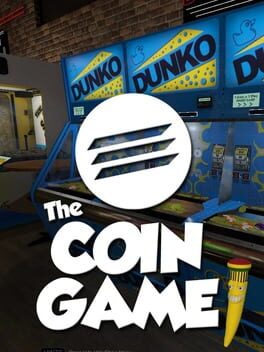kaijudave
Thanks to my local video game store for cleaning out the scratches from my copy, I could finish the final portion of the game and give my thoughts on Sly Cooper. Like Ratchet & Clank, this was a series I never grew up with when the PS2 was still king. Being a fan of funky 3D platformers with collect-a-thon mechanics, the first game of the series brings a wonderful impression to what Sly Cooper is about. Cooper himself is an incredibly cool and suave character that is also not insufferable. The game does everything it can to immerse you as a stealthy trickster and "thief" who is trying to salvage his ancestor's legacy that was taken away from him. For a story that builds on this comic-book like, Saturday morning cartoon approach, it creates an effective call-to-action. The game itself is also paced very well. Levels are linear and short, and collectables can be found within one or two runs. I appreciate a game that can build great environments within small spaces like this. The bosses carry the right amount of challenge, and while I don't want to spoil too much, they all have unique gimmicks that I hadn't seen done in many games. If there's anything to fault this game for, it's for the mini-games disguised as afterthoughts to pad a good game. Other things like the camera controls and positioning could have been handled better. The hitbox detection is also inconsistent at times and resulted in more deaths than I care to admit. By today's standards, the Thievius Raccoonus holds up well enough with the limitations presented.
2002
As much as I love platformers and furry characters, I never played Ratchet & Clank up till now. After pushing through it, I want to like this game a lot more but it left me more frustrated than entertained. People's love for this game seems to hinge on nostalgia, because they don't ever seem to talk about some of the more clunky aspects of its gameplay. For one, it really didn't need this array of mediocre weaponry as only a few merited rotation. The mini-games seem to be an afterthought, hence why the bolt farming glitch possibly exists (and makes the final boss a goddamn breeze). While each world is small and contained, enemy rushes and an unclear checkpoint system make the later portion of the game a complete chore to get through. Having to trace back to previous worlds also feels like padding for a game that runs its welcome already. The saving grace of Ratchet & Clank is the worldbuilding, the cutscenes, the character arcs, and the political humor that has aged like wine. This is what I imagine makes the biggest impression and gives the drab experience some color and meaning. It's why I even bothered finishing this game at least. I hear the later entries improve on the negatives more but we will have to see when I get there. Overall, I can understand why this had the staying power it did but I'm not going to lie that this is one of the more clunkier 3D platformers on the system.
1993
I've admired Ridge Racer from afar and I wanted to see what all the hubbub about this franchise was about. Now, there's a lot of cool things and a lot of things that have aged this first entry. First off, the music is incredibly stellar, filled with jungle and drum'n'bass goodness. I even got the remixes CD from Namco Sampling Masters. What's better is that this game lets you play music from burnt CDs, the only game outside of the PS1 rhythm games to offer this option as far as I know. As far as the racing goes, it's pretty forgiving as long as you have the timing of your turns right (and I would suggest first-person mode on this). This game is very very short when you have the tricks down, because you only have one track that changes based on difficulty. Sure, you unlock different cars and get a few from cheat codes but they hardly change the dynamic of the game. This is a game screaming for something a bit more, maybe another track possibly. It's a charming little PS1 game for sure, but I feel sorry for anyone who bought this at retail. Shoutout to those that were able to beat the Galaxian mini-game.
2004
As my first exposure to the PIU series and the only one to come to home consoles in the west, it was the coolest thing to younger me. Here comes a game with so much edgy coolness, with mature content and equally in-your-face music. It's surprisingly aged well too, as the metallic sheen of the UI and transition effects have held up. It's also astonishing that a lot of the music is representative of the arcade game too, choosing to keep the Korean music intact instead of opting for more accessible Western content. I remember I downloaded MP3s of all the songs and burned them to CDs so I could listen to them outside of the game. It was my first exposure to Korean music and it was a very awesome time. As for the actual gameplay, it feels like your usual DDR except they're diagonal and have a center button. From what I remember the dance mats were always pretty responsive and playing on controller was fine, but it's very dependent on if your shoulder buttons can handle it. The only negatives I could impose is that if you're sensitive to light flashes and motion sickness, you may want to turn off the videos. It's disappointing there was never a follow-up, as PIU has mostly stayed in Korea as of now.
2019
[Thoughts based on playthrough of Director's Cut]
With the advertisement campaign over and about two years to reflect since its release, Death Stranding is still a bizarre game to talk about.
In terms of gameplay it's one of the most unique as it takes the philosophy of "the journey versus the destination" to its extreme in a gaming context. How you deliver truly matters, as simply tripping on a rock can cost you if you're not careful. The game gradually introduces new modes of transportation, enemies, and equipment to further expand your mail delivery empire and ease your journey. That doesn't mean you won't run into issues, just that your fuck-ups become magnified as you can accidentally trap a whole truck of cargo down a river. It can feel feel exhausting and even discouraging when it happens but the online function of letting players help each other through donations, likes, and structures keeps the game from being pessimistic. This exploration of risk and reward is what has sold many to keep playing including myself.
In terms of story and how Kojima games work, I'm not going to delve too deeply into it. If you've played a Kojima game and are into his frustrating and complex character arcs and worldbuilding, Death Stranding proves to be the next jump. If you don't, and frankly even if you do, you have to deal with Kojima's bizarre fusion of game and movie philosophy that can be up its own ass. Either way, I personally did get invested in it and I find it more entertaining than frustrating.
While I would say I had loved this game from the get-go, it's interesting how many players and game critics who've initially hated this game would magically put in 80+ hours and multiple playthroughs. I suppose it's a game that's fun to be angry about, which is fine by me We'll see what another few years will do to this game.
With the advertisement campaign over and about two years to reflect since its release, Death Stranding is still a bizarre game to talk about.
In terms of gameplay it's one of the most unique as it takes the philosophy of "the journey versus the destination" to its extreme in a gaming context. How you deliver truly matters, as simply tripping on a rock can cost you if you're not careful. The game gradually introduces new modes of transportation, enemies, and equipment to further expand your mail delivery empire and ease your journey. That doesn't mean you won't run into issues, just that your fuck-ups become magnified as you can accidentally trap a whole truck of cargo down a river. It can feel feel exhausting and even discouraging when it happens but the online function of letting players help each other through donations, likes, and structures keeps the game from being pessimistic. This exploration of risk and reward is what has sold many to keep playing including myself.
In terms of story and how Kojima games work, I'm not going to delve too deeply into it. If you've played a Kojima game and are into his frustrating and complex character arcs and worldbuilding, Death Stranding proves to be the next jump. If you don't, and frankly even if you do, you have to deal with Kojima's bizarre fusion of game and movie philosophy that can be up its own ass. Either way, I personally did get invested in it and I find it more entertaining than frustrating.
While I would say I had loved this game from the get-go, it's interesting how many players and game critics who've initially hated this game would magically put in 80+ hours and multiple playthroughs. I suppose it's a game that's fun to be angry about, which is fine by me We'll see what another few years will do to this game.
2001
I kind of wish I had known about this forgotten rhythm game series when I was growing up because lil ol' me would have loved this shit. Frequency is very unique in that it was most likely the blueprint to what Guitar Hero would be, using a music track with timed patterns. It sounds simplified too until you involve a row of them bunched in a circle Tempest-style. Each track plays one instrument and the goal is to combo between tracks to get the full track playing till the end. It's a pretty neat concept and its paired with wonderful neon-glow visuals. It's a striking game even if it tends to go overboard on being too abstract. The song list is pretty decent too, even if a bit dated. It's the best you can ask for trance, electronica, and trip hop at this time. The biggest drawback that prevents me from fully liking the game is that button timing is outright atrocious with this game sometimes. I've tried different controllers, timing combinations, and button remapping to get it to respond to my inputs correctly and it never would. Don't get me started with the difficulty of this game as well. It does not help that you have to be very quick and precise as you progress. This is ultimately have it shelved, and I was at the second to last song by that point. I do still like Frequency at the end of the day, I just wish it wasn't as broken for me so I could enjoy the experience more.
2003
Amplitude may be the sequel to Frequency, but it can be argued they go for very different aesthetics and game designs despite the core of its gameplay being the same. You still have to fly along a musical track, with each one denoting the different instruments that all play together if you keep a consistent combo. It becomes different now that the tracks are laid flat instead of a circle, so you have to zip left and right instead of turning a 180. I personally don't like that you can't loop from one end to the other, but if you're good at doing combos it shouldn't be too different. Aside from that, I find the aesthetic of Amplitude to be more pleasing. It has grungy and futuristic metropolises that you traverse, you get goofy 3D avatars as your icons, and it's overall a more defined world than Frequency. Of course this is a rhythm game, so how's the music itself? Honestly, it's a hit-or-miss collection of 90s and 00s punk/grunge/pop remixes that really show their age. If you're into reliving the days of P!nk, Slipknot, and Blink-182, by all means you'll love diving into this. One other point I'll give Amplitude over its predecessor is that the time input is not as harsh or as unresponsive, so I was able to finish the game. It's just as difficult though, so don't think of it as an easy ride either. Taking it holistically, Amplitude is a fine rhythm game that I wish was explored a lot more because it has so much potential. If you're not a rhythm game fan however, you're not missing out on too much as it isn't very beginner friendly.
2016
After playing through the original Amplitude and the Frequency follow-up, I find the revival of the series to be an odd one at best. I do like that the core game-play feels right at home with the PS2 series, and rightfully improves upon it. I like the sci-fi narrative and venturing to different parts of the brain. I like the presentation, graphics, and overall art style as well. So why the hesitation to call this good? Since it's a rhythm game, all rhythm games live and die on the quality of the music and Amplitude simply does not cut it. It could be because the music was made in-house or because the style of music they went for feels awfully generic for EDM even in 2016, or that the way the music is mixed just sounds like utter cacophony at times. Whatever it is, I personally don't care for 80% of the music on here. You couldn't convince me to listen to it on my own time which is sad because it has artists I otherwise like (ie, Jim Guthrie, Freezepop, C418). It sucks we may never get any follow-through for this unique rhythm-game series, but I have to admit this is mediocre at best.
2002
I'm not going to bother I know anything about substantial about Newgrounds games; I never grew up with that era of the internet. My intrigue with Alien Hominid is that it even existed on home consoles in the first place. It doesn't perform the best (at least not on PS2), but it's some good fun on both the main campaign and the PDA games bundled with it. This is a game and art style that would have worked incredibly well on console, but I can understand the simple port conversion. Aside from that, it has its moments but Alien Hominid has not aged well with its unfair difficulty spikes and limited lives. It would be nice to see a revisit of this game, but otherwise it remains fittingly as a curiosity.
1999
Vib-Ribbon is one of the few games where the magic can only be understood on the original hardware it was meant to be played alongside. The main campaign of the game is more a demonstration for the real reason you would play the game, which is to insert your own music CDs to play. Even if the auto-generated tracks that Vibri walks on can be hit or miss when choosing difficulty, it's fun to experiment what kind of auto-generation can occur when switching between different music genres. It's that exact gaming experience you cannot replicate through the emulated version and through the unique circumstance of how the PS1 hardware functions. This is not to discredit the content that already exists in the game, as the core soundtrack of Vib-Ribbon is satisfying enough. It's some of the happiest, poppy, and child-like tunes you will encounter on the system.
2018
Holy fuck mom this game is awesome! I probably don't have anything nuanced nor new to say about this game that hasn't been praised to death. The voice-acting and dialogue is good enough to never skip. The way the story and gameplay intertwine as you improve at every playthrough is genius and rewarding. You get a deep and emotional attachment to every character, as they feel like real people despite the mythical setting. This is also the first and maybe last game that will ever get me this invested in Greek mythology. The possibility of romance and polyamory along with the implications make my gay heart sing. Even after the post-game, when it feels like you've exhausted every aspect of the game, you will somehow run into new dialogue which is impressive. I haven't even said anything about the gameplay, which let's be honest, may be the pinnacle of rouge-likes. I'll keep it short to here, because when a game has you gushing this much, you know you've found a masterpiece.
1995
My willingness to try out this franchise is strong, but neither nostalgia nor the novelty of the PS1's graphics can hide the clunky and awkward gameplay and feel of Wipeout. Out of the huge lineup of racing games, it will always stand out as the most unique, due in part from Designer Republics' mastery of graphic design and the help of the hottest IDM and trance electronic artists at the time. If you can handle the floaty ships, blazing pace of the tracks, and the tight turn controls, it rides like a dream. That dream however is in spurts, because you'll spend more time trying not to touch the sides of the tracks and avoiding every ship inching for your spot. Your momentum is otherwise dead on arrival, and basically ends your chances of winning. You can definitely chalk this game up as a high-risk, high-reward thing, but you can definitely tell they were still working out the kinks on this one.
2003
This is the game I was least familiar with in terms of the Silent Hill franchise. I knew the general story and have seen the analysis videos, but I would struggle to remember much of the game itself until playing it recently. Silent Hill 3 feels like the darkest of the franchise in terms of environments. You're running through run-down buildings, rusty amusement parks, slimy trap rooms, and claustrophobic streets. Even when the environments aren't in the possessed realms, the grime still feels palpable. It's a much different pace from SH1 and 2 in that regard. Enemies are more plentiful here than usual, and with limited ammo it's the one game where I had to actually conserve my ammo rather than clearing the room of demonic entities. While the plot twist has been ruined for me, I can still recognize how shocking that may have been. In terms of Heather, I very much enjoy the change of pace from a male protagonist. Heather's "girl boss" attitude gives appropriate relief from the horror and has given us plentiful memes as well. With all that praise out of the way, I don't consider SH3 to be my favorite in comparison to the first two games. Even so, it's only in terms of nitpicking at a critical light because it's still an incredible game otherwise.
2019
The Coin Game fills a much-needed void that I never knew needed to be filled. If you're looking for the tantalizing and fantastical feeling of winning a shit ton of tickets at your local kid's arcade and pizzeria joint, this is the game to cost you hours of your life. It's incredibly silly to describe the adrenaline of watching the coins fall in a coin pusher or aligning the red square tower to get worthless prizes, but no game out there simulates these machines as well as this game. Even outside of those moments, exploring the locales and stores is surprisingly immersive. At the time of writing this, this is still on Early Access, constantly being updated with fixes and new content. This means what you're experiencing is not in a finished (nor optimized) state, so a lot of hiccups are to be expected that will take you out of the immersion.
2015
This is a great way to get into the Yakuza franchise and you can tell how much heart and soul is poured into everything. While the fighting system is the main core of Yakuza 0, it is by no means the only way to enjoy the game. If you're not itching to advance the plot, city life will fill your cup with wonderful side-stories and freeing exploration. And if you're only in it for the story, there's a lot to chew on as well, although it can be argued not doing some of the exploration does a disservice to the full gaming experience of Yakuza 0. There's a reason for all those Yakuza memes, and I swear to you they are worth looking. Whatever your taste, this game has you covered.
